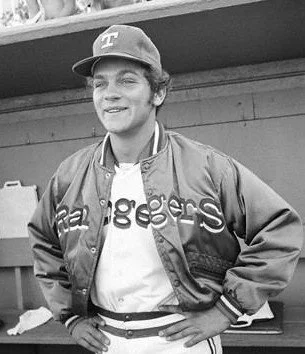The drafting of David Clyde
David Clyde in 1973 with the Texas Rangers (Dallas Morning News photo)
The unpredictability of the amateur baseball draft is never more evident than it is 52 years ago today.
The Texas Rangers – no doubt giddy over the prospect of selecting a Texas-raised high school pitching phenom with the first pick of the 1973 draft – go for the ridiculously talented, and equally raw, David Clyde.
And they promptly seem to set their franchise back a generation.
The Philadelphia Phillies follow with the No. 2 pick and select catcher John Stearns, who eventually becomes a four-time All Star but does so with the New York Mets.
As if that is not enough to embarrass the Rangers, the Milwaukee Brewers and San Diego Padres then take future Hall of Famers Robin Yount and Dave Winfield with the No. 3 and No. 4 picks in the draft.
Never mind that every other team initially whiffs in the first round on future American League Rookie of the Yean and MVP Fred Lynn, and another future Hall of Famer in Eddie Murray, who are selected, respectively, in the second round at No. 41 overall by the Boston Red Sox and in third round at No. 63 by the Baltimore Orioles.
David Clyde
As for Clyde, the Rangers choose to let the 18-year-old pitcher skip the minor leagues and rush him to the majors for his debut only 20 days after making him the first overall pick.
Wins that debut, too, working the first five innings of the Rangers’ 4-3 victory over the Minnesota Twins before a Wednesday night crowd of 35,698 at Arlington Stadium.
Clyde faces 21 batters in his debut, allowing only two runs on two hits. He also strikes out eight Twins and, well, walks seven of them.
“It was the dumbest thing you could ever do to a high school pitcher,” Rangers outfielder Tom Grieve later tells the Longview News-Journal.
“In my opinion, it ruined his career.”
After some early, albeit sporadic, brilliance, Clyde’s career bottoms out.
He lasts all or parts of five seasons in the majors, putting together an 18-33 career record and 4.63 earned-run average before drifting to the minors and retiring at the age of 26.
“It was like taking a kid,” Clyde recalls to the Los Angeles Times, “and throwing him into brain surgery without going to medical school.”

